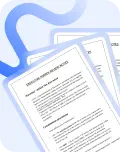#11397 - Injunctions And Choosing Remedies - Modern American Remedies 4th Ed. Laycock
Distinction between Preventative/Reparative Injunctions (generally, not doctrinal): All injunctions are preventative in the sense of seeking to prevent wrongful HARMS
Preventative Injunction: Injunctions that prevent the wrongful ACT (or lawful act that might have unlawful consequences) from happening, or to prevent continuation of a course of conduct
Reparative Injunction: Injunctions that prevent some or all of the harmful CONSEQUENCES of the act. The wrongful act is in the past and Plaintiff seeks an injunction to undo its consequences or prevent its future consequences
One-Satisfaction Rule [Forester] Applies: Court can prevent the harm or compensate it, but they cannot do both
“Obey the Law” Injunctions: generally thought to be prohibited by FRCP 56(d)(1) which requires that every order granting an injunction must (a) state the reasons why it issued; (b) state its terms specifically; and (c) describe in reasonable detail—and not by referring to the complaint or other document—the act or acts restrained or required
Consent (as opposed to “Litigated”) Decree: an injunction entered by agreement of the parties (usually via settlement), subject to the approval of the court. Once entered, it is a final judgment and a permanent injunction as much as if it had been fully litigated.
Private Settlement Agreements v. Consent Decrees: With a consent decree court retains authority to enforce – violation is contempt of court; violations of private settlement agreement is only breach of contract
There are political complaints about outgoing administrations agreeing to consent decrees that bind their successors (potentially part of the rhetoric for easier modifications)
|
Why do we have rules for damages v. injunction?
Arose by historical accident – Chancery (equity) courts were made to do only what the law courts could not to.
Burdens on the court: sometimes said that injunctions impose a greater burden on the court, because they have to be enforced over time. Probably not as true as it might sound – suing and collecting damages in structural injunction cases may be more difficult. Must compare similar cases when determining this though.
Defendant’s Liberty: It is sometimes said that injunction is a greater intrusion on defendant’s liberty – injunction orders him to do or refrain from specified conduct, as opposed to a damage remedy that leaves him free to proceed is he is willing to pay the cost.
Jury Trial: in most jurisdictions there is a right to jury trial at law but not in equity. Thus, it is often said that the irreparable injury rule protects the right to a jury trial
Potentially timing issues – need to rush to hold a hearing on the injunction before the harm happens.
|
-
Right to a Jury Trial: The Court in Willing v. Mozzocone says the damage remedy preserves Willing’s right to a jury trial. This is often offered in defense of the irreparable injury rule generally. In most places, injunctions are issued without juries (watch out if it looks like a plaintiff is seeking an injunction just so D does not get a jury trial, not a very broad scope, does not happen often)
D may want a jury trial because she is a more sympathetic figure than the plaintiffs. However, juries are majoritarian – they rarely protect unpopular speech in a democratic polity.
Jury trial is generally thought to be a bigger advantage to plaintiffs than defendants, because they are more likely to act out of sympathy if liability is unclear, and because a jury’s assessment of damages is likely to be bigger than a judge’s.
-
Multiplicity of Suits: Superior Court in Willing mentions another traditional ground for holding legal remedies inadequate: that the legal remedy would require a “multiplicity of suits” because plaintiff would have to sue repeatedly as defendant repeated the libel.
-
Probably not a factor when a damage award is itself enough to deter the action, but if Defendant’s conduct is profitable even after paying damages this problem arises.
This is the tension with economic analysis on profitable violations. But economics does not encourage profitable violations where the victim’s identity is known in advance, so that bargaining is possible.
A continuing small injury is irreparable because it is small (judges occasionally suggest that “irreparable” means especially severe or serious, so that little injuries are not worth preventing by injunction) [thus, irreparable does not mean serious. Compare Continental Airlines, where there may have been no damages at all]
-
-
Crimes: Equity will not enjoin a crime except when criminal prosecution would not be an adequate remedy. With the qualification that this is just a general application of the irreparable injury rule.
Low level criminal conduct gets enjoined quite often because waiting for ever to enjoin it is not practical.
REAL RULE: KEY IN ARGUING FOR AN INJUNCTION IS JUST COMPARING THE COSTS AND BENEFITS IN EACH CASE. YOU THEN HAVE TO RELATE THAT BACK TO THE FOUR-PRONG TEST
|
|
Injunctions against future violations of the law attempt to keep plaintiff at his rightful position by preventing the wrong from happening.
Rule: Requirements for an injunction to issue:
|
purchase it now!

